RT Pride icon Lord Michael Cashman: "You should never compromise your principles"
The LGBTQ+ icon speaks with RadioTimes.com for Pride Month 2023 - discussing representation, EastEnders, and writing.
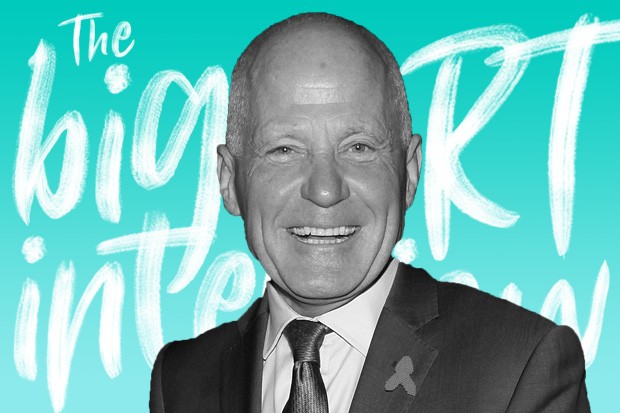
Few people have had as much of an impact on LGBTQ+ representation on and off television in the UK as Lord Michael Cashman.
East-End born and bred, a young Cashman pursued a career as a child actor which took him to stage and screen, eventually growing up to work alongside the likes of Elizabeth Taylor and starring in hit shows such as Doctor Who and The Sandbaggers.
Despite knowing he was gay from an early age, Cashman was short of clear and platformed role models while growing up.
Speaking to RadioTimes.com for Pride Month 2023, Lord Cashman offered a thoughtful response when discussing how much LGBTQ+ representation has changed from when he was growing up as a young gay man.
He recalled: "I remember the excitement when you heard in the bars and clubs that I went to in these back streets of stairs, probably heard rumours about someone who was famous who might be gay. For us, we then said Queer, yeah. And somehow you belong with that rank of people."
Cashman later added: "Most of my life, my history has been given to me through the darker pages, the scandal sheets through the tabloids to the court cases that were reported. The people who hung themselves. My history wasn't up there in lights."
He went on to note: "The empowering thing about coming out – all my people who are successful and come out – is because you empower others, you make other lives lighter and brighter.
"And that's why I find those still trying to depict LGBT people as a threat, I find that deeply depressing because they won't accept experts that we are as ordinary and extraordinary as them.
"And I lived through that part of the AIDS pandemic, where arguably, we lost nearly a generation – a generation of mentors, of teachers, of lovers, of creatives. And people have forgotten that... instead of support and empathy being piled on to our community, hatred was piled on – Section 28.
More like this
"'There they are, vulnerable, push them down.' So somebody said, in the inaugural Jonathan Cooper lecture, 'Don't forget, remember', because it's happening again, now."
After his already colourful acting career in his youth, Cashman's life would change forever when he made his debut in the fresh new soap opera EastEnders in 1986, portraying a sweet-natured yuppie graphic designer Colin Russell, who would later be revealed to be the first on-screen gay resident in a UK soap opera.
Taboos were broken during Colin's time on the soap, including the first gay kiss in a UK soap opera in 1987 and then the first mouth-to-mouth gay kiss in 1988.
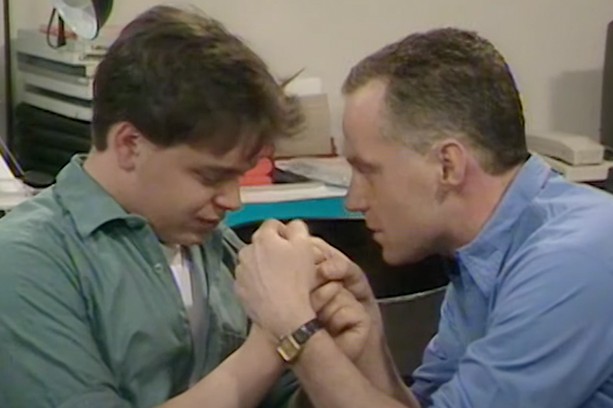
Colin was a popular resident and his presence on British television and romances with the likes of Barry Clark (Gary Hailes) and Guido Smith (Nicholas Donovan) provided a slither of representation in a time when positive role models for the LGBTQ+ community were scarce.
However, Cashman was aware of the controversy he would face going into the role due to his understanding of the media.
He recalled: "I suppose the honest answer is that when I took the job, I knew that there'd be trouble because I asked the producers how I deal with the tabloids, because the depiction of gay men particularly at the times was synonymous with being HIV positive, of dying of AIDS, synonymous with being represented as paedophiles.
"That was the whole notion behind Section 28 that came in during that period. Yeah. So I knew they'd go for me.
"Did I know that the public would react to him that way? No, but I trusted Julia Smith, producer, and Tony Holland because I've worked with them before, well enough to know that they would do it properly.
"And that was my catch, you have to do this properly. No stereotypes, it's about the man, and they were clever because you got to know him initially through other characters in the show that they liked, like Pauline Fowler, Dot Cotton, and Angie in the pub – major characters.
"They were interested in what his life was like and so it was three months before the public actually were aware that he was gay, even though he'd been on the front page of The Sun and other newspapers before I went in.
"And I think the quality of the writing was such that him going into their homes twice a week, repeating it on Sunday, they began to see that actually Colin was very ordinary.
"I mean, some of the criticism I took from the gay press and some of the gay critics – 'he was boring.' Boring to them, but he was ordinary, he got on with his job, and he had a beautiful boyfriend. I think that was part of the social change."
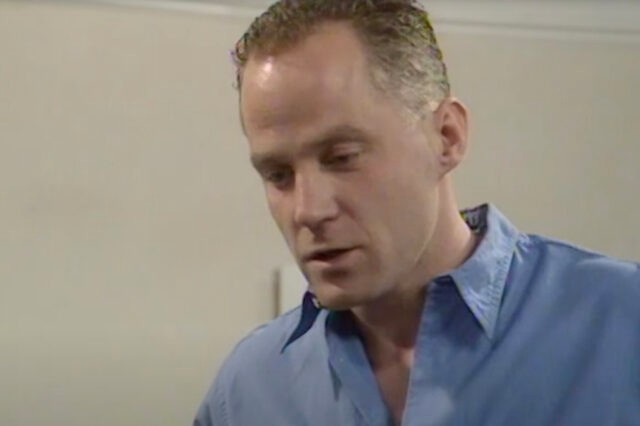
While Cashman left the soap in 1989, his work did not stop there as he continued his activism fighting for LGBTQ+ rights and founded the revolutionary UK charity Stonewall in 1989 alongside close friends including Sir Ian McKellen and Cashman's EastEnders co-star Pam St Clement.
"The currents of me being in the show, then the government introducing Section 28, me being on the campaign against that and Stonewall coming out of that – that was kind of a coalescing of crisis points that actually brought about something strong, positive," revealed Cashman.
"Which is we've lost the battle to get rid of Section 28, we've won the argument. So let's now go and win the argument for change, to stop another Section 28 ever again."
His lordship has also worked as an Honorary Associate of the National Secular Society, along with being a patron of The Food Chain, a London-based HIV charity.
Moving further into politics, Cashman became a patron of LGBT Labour and joined the European Parliament as an MEP for the West Midlands from 1999 to 2014.
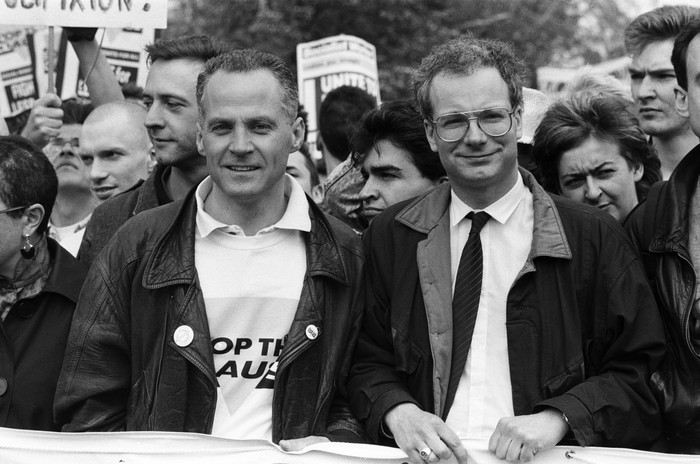
In 2013, he received a CBE (Commander of the Order of the British Empire) for his work in public and political service, followed by a life peerage as Baron Cashman of Limehouse in 2014.
Cashman resigned from the Labour Party in 2019 due to his staunch criticism of Brexit but rejoined the party in January 2022.
In our conversation, the veteran activist pondered the passivity of some today who seem unwilling to go out and protest the treatment that the vulnerable are receiving.
A grave Cashman questioned: "Where is your anger? Is our anger that we go on social media, and we tweet, or we retweet? So we don't have to go on that demo that we just tweeted about?"
Lord Cashman is particularly mindful of the toxic discourse surrounding trans rights, which has become especially prevalent in the media in recent years.
On what he hopes to see in the media, he called for news organisations to move away from the need to "always have the opposing voice to LGBT issues represented, giving space to the other side", and explained that going on marches for social change should never be seen as controversial.
"The only thing that is controversial is being high in favour of racism, homophobia and transphobia," he added.
"That is the biggest thing I'd love to see, a leap forward. With fame comes responsibility – on how you use or misuse it. But you should never compromise your principles."
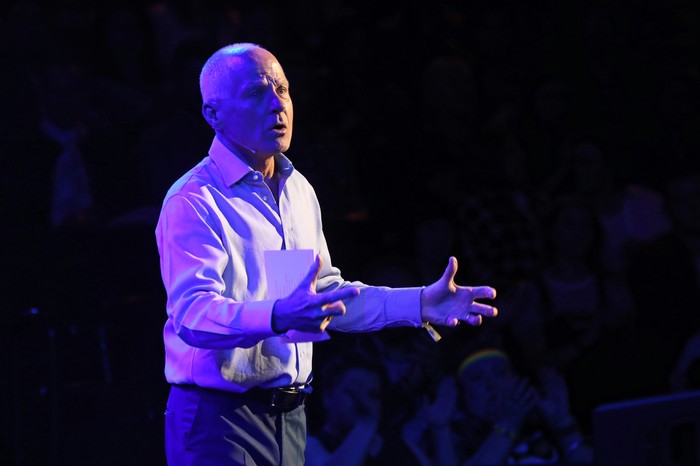
Cashman also spoke to his views on how the Director General of the BBC should be selected – and not by the government of the day, which he argues would also avoid scandal.
"I think it should be what we also want to do with the House of Lords – that you have the names go forward, and then the commission decides who it is," concluded the Labour politician.
Cashman continues to fight for causes he believes in – including LGBTQ+ and the current Illegal Migration Bill – but he is also exploring his creative side through writing.
After publishing his moving and stellar autobiography One of Them in 2020, Cashman is now turning his attention to writing his first fiction novel.
"It's set in the East End of London from 1959 to a 2001 funeral," teased Cashman. "It's a story about women, what women did to survive, what women did for their children."
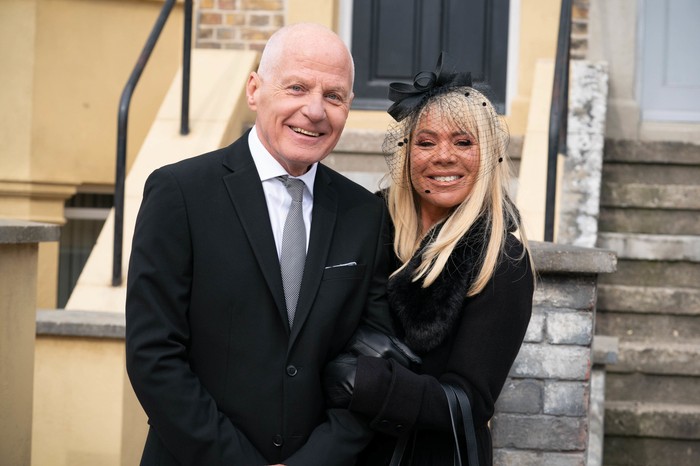
Despite throwing himself into writing – sometimes with a cheeky alcoholic beverage – and continuing his vital work in the House of Lords, Cashman was able to return for the emotional funeral episodes of Dot Branning in EastEnders last year following the death of his friend June Brown.
Cashman felt that Colin had to be there to say goodbye to Dot and the episodes also revealed that Colin had romantically reconciled with his old boyfriend Barry.
He recalled: "Bryan Kirkwood wrote the episode where Colin and Barry got their kiss on the lips, which they were denied for 37 years, and he said – I'm sure he won't mind me saying this – but when he wrote that scene he cried."
Despite no longer being a regular in the soap, Cashman still has strong friendships in Albert Square – including with the recently returned Michelle Collins.
"Michelle is a very close friend," he noted. "She and Paul were great friends."
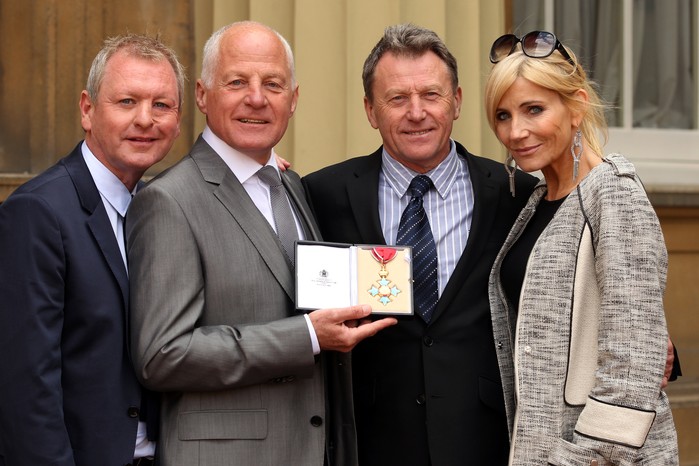
Other friends included: "Of course, Barbara [Windsor] was [and her husband] Scott [Mitchell]. Tish Dean, of course. Gilly Taylforth. I enjoyed meeting Scott Maslen, you know, Scott's become a friend. Adam Woodyatt is a great friend and wonderful, always been there for me."
One thing that truly comes through from speaking to Lord Cashman and from reading his autobiography is his enduring love for his late husband Paul Cottingham, who he was in an epic romance with for 31 years after being introduced to each other in 1983 by the late Dame Barbara Windsor.
Cottingham was also an actor and humanitarian activist who went on to work with the Labour Party and alongside his husband as a researcher in the European Parliament.
Sadly, Cottingham passed away in 2014 after receiving treatment for the rare cancer angiosarcoma in 2011.
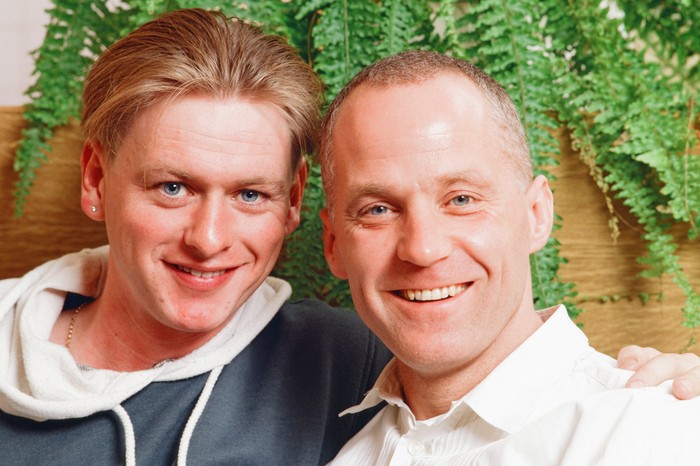
Cashman revealed that his husband had always encouraged him to write his memoir and so when he did write One of Them, he knew it would be for him: "I wanted to write a love letter to him about our life, and how love changes you forever and in times of great strain, be the only thing that sustains you."
Lastly, our conversation ended with a discussion about something which has become almost like Cashman's catchphrase, especially in his activism: "Together, only together."
He explained: "For me, well, it's multi-dimensional. No one, no one achieves alone. People are often vulnerable. Other people's rights are under threat, other people's rights are 'inessential'. Make sure you are always good. Align yourself with the most defamed, the most misrepresented, because you'll be next.
"It's selfish and it's principled. Selfish in that you have everything to gain by working with others. Principle I felt really good. Imagine what is happening to somebody else. Principled, I hope, because you should imagine what is happening to somebody else, as if it's happening to you and if you wouldn't want it to happen to you, you shouldn't let it happen to somebody else.
"That for me is the concept of together. Stand in the shoes of the 'other'. Ask someone to stand in your shoes. And it's terrifying, it's empowering and it means fewer casualties in societies because it means the bullies will back away.
"Together, only together."
By entering your details, you are agreeing to our terms and conditions and privacy policy. You can unsubscribe at any time.
If you’re looking for more to watch, check out our TV Guide and Streaming Guide.
Take part in the Screen Test, a project from Radio Times and the Universities of Sussex and Brighton, to explore the role of television and audio in our lives.
Try Radio Times magazine today and get 12 issues for only £1 with delivery to your home – subscribe now. For more from the biggest stars in TV, listen to The Radio Times Podcast.




